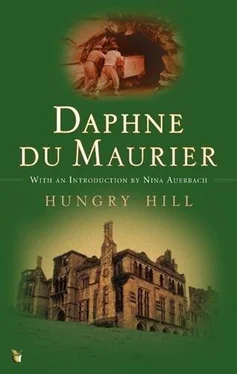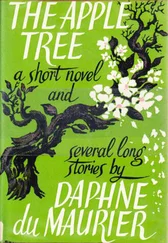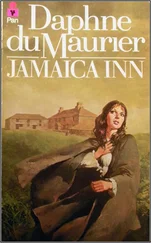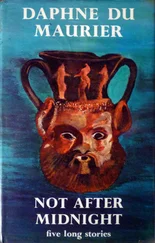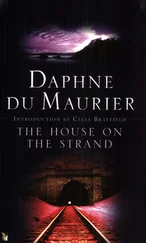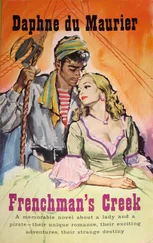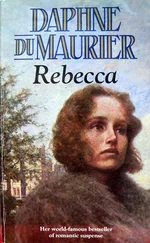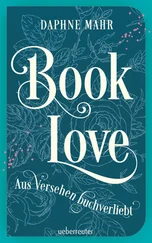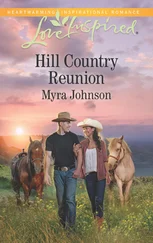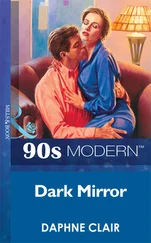Daphne du Maurier - Hungry Hill
Здесь есть возможность читать онлайн «Daphne du Maurier - Hungry Hill» весь текст электронной книги совершенно бесплатно (целиком полную версию без сокращений). В некоторых случаях можно слушать аудио, скачать через торрент в формате fb2 и присутствует краткое содержание. Жанр: Историческая проза, на английском языке. Описание произведения, (предисловие) а так же отзывы посетителей доступны на портале библиотеки ЛибКат.
- Название:Hungry Hill
- Автор:
- Жанр:
- Год:неизвестен
- ISBN:нет данных
- Рейтинг книги:3 / 5. Голосов: 1
-
Избранное:Добавить в избранное
- Отзывы:
-
Ваша оценка:
- 60
- 1
- 2
- 3
- 4
- 5
Hungry Hill: краткое содержание, описание и аннотация
Предлагаем к чтению аннотацию, описание, краткое содержание или предисловие (зависит от того, что написал сам автор книги «Hungry Hill»). Если вы не нашли необходимую информацию о книге — напишите в комментариях, мы постараемся отыскать её.
Hungry Hill — читать онлайн бесплатно полную книгу (весь текст) целиком
Ниже представлен текст книги, разбитый по страницам. Система сохранения места последней прочитанной страницы, позволяет с удобством читать онлайн бесплатно книгу «Hungry Hill», без необходимости каждый раз заново искать на чём Вы остановились. Поставьте закладку, и сможете в любой момент перейти на страницу, на которой закончили чтение.
Интервал:
Закладка:
He slowed down the car, for the pass was narrow here, and as he turned the bend he saw, right in front of him, a barricade of torn heather and loose wire lying across the road, and beside it a man standing with a rifle in his hand. John-Henry drove slowly to the barricade and switched off his engine. The man did not move, except to cover him with the rifle, and then, putting two fingers in his mouth, he whistled loud and shrill. Some half-dozen figures crept down from the boulders above the pass. All of them were armed.
John-Henry knew none of them. One, he supposed their leader, came to the door of the car and leant upon it.
"What's your name?" he said curtly.
"John-Henry Brodrick."
"Where are you going?"
"To my home, Clonmere, at Doonhaven."
"You served in the Royal Navy in the war, didn't you?"
"I did."
"What are your politics?"
"I have none."
"Were you staying last night in the Hotel Metropole in Slane?"
"I was."
"All right." He jerked his head to a couple of his companions.
"I shall have to ask you to get out of your car."
"What for?"
"That's our business. You'll not be harmed if you go quietly. Try to be funny with us, and we'll put a bullet between your shoulder-blades."
"What are you going to do to my car?"
"You won't see it again. Cars are too precious to us."
The man grinned for the first time. John-Henry shrugged his shoulders.
"I was warned not to take my car on the road.
I've only myself to blame. Go ahead then. What do you want me to do?"
"Stand still while we bandage your eyes. I tell you again, we're not going to hurt you. Now put your wrists behind your back. Take his arm, Tim-you know what to do if he plays tricks."
What a damned fool he had been to fall into this trap! They had told him in Slane it was an act of lunacy to take a car out upon the road. And now he would probably be shot in the back and left to die on the hills. It was the loss of his car that angered him most. The old car, the faithful friend, being driven to hell and damaged by these madmen. No hope of ever getting it back again, of course. He cursed and swore uselessly to himself, as he stumbled over the heather and the stones, a man guiding him on either side.
They must have walked three miles or more, in heaven knew what direction, before they came to a standstill, and there was a sound of a door being unlocked, and someone saying something in a low voice, and then the bandage was removed from his eyes and the bands from his wrists, and he was standing on the mud floor of an abandoned cabin.
There was some loose straw in the corner. The small window was blocked with rags, and the hearth was black with long-burnt sticks and ashes.
"You'll have to stay here awhile," said the man who had unbound him. "I shall be outside on the hill, and my orders are to put lead into you should you run. I'll be bringing you something to eat and to drink."
"How long," said John-Henry, "is this foolery to go on? And what am I supposed to have done?"
"I don't know anything about it," said the man.
"I have my orders, that's good enough for me."
And he went out, bolting the door behind him.
Oh, God damn them all, thought John-Henry; what in hell's name do they want with me, and why must I be mixed up in a revolution which means less than nothing to me, and with which I have no concern? He went and sat down upon the straw, for there was no chair or bench, and presently the man was as good as his word and brought him some bread, and some very sour cheese, and a pitcher of water.
"You haven't any ale, I suppose?" asked John-Henry.
"I have not," said the man, "but I have a flask on me with a drop of whisky in it, and you can have a spot of it if you're that way inclined."
John-Henry swallowed the whisky, and the man smiled.
"Oh, that's all right," he said. "I can get more when I want it, and you'll be here till the morning, or maybe the day after, I don't mind telling you."
"Look here," said John-Henry, "you can take my wallet-there's twenty pounds in it-if you'll let me out of this place."
"I don't want your money," said the man.
"We'd have taken it from you if we'd had the need.
Is it robbers you think we are?"
"You stole my car, didn't you?"
"We borrowed it for the cause. When the country is free you can have it back again."
"That's nonsense, and you know it. Why am I kept here?"
"I tell you I don't know, and that's the plain truth, before God. Do you play two-handed whist?"
"I did once. I haven't played it for a long time."
"I have a pack of cards here in my pocket.
If you're agreeable we could have a game, and it would help to pass the time. I can't do a thing outside your door but kick my heels and look at the heather. We might as well be company one for one another as not."
"All right," said John-Henry, "bring out your cards." They sat down together in the small, close cabin, with a patch of light coming in at the stuffed-up window, and they played two-handed whist, and finished the whisky in the flask.
And this, thought John-Henry, is surely the madness of all time, that my captor and I pledge one another in illicit spirit, and he takes money off me in whist that he is too proud to steal, and we discuss the best method of snaring rabbits. Tomorrow he shoots me in the back, and maybe, as the sentry said in Slane, he will weep with pity and bring flowers to my funeral.
Two days passed, with the fellow Tim leaving him from time to time and coming back with bread, and sometimes cold bacon, or a fowl's leg, and more whisky in the flask to keep body and soul together, and each time John-Henry would ask him, "Well, Tim, when is the execution to be?", and each time Tim shook his head and said, "I've told you before, there's to be no execution."
"Then what am I doing in this confounded cabin?"
"You're having a rest, for the good of your soul," answered Tim, and out would come the greasy pack of cards, and the tipple of whisky, and was it fifteen pounds that Tim had won now or seventeen?
John-Henry did not remember, but it was fair exchange for the whisky, and maybe if he was warm enough in mind and body he would have no fear when they shot him in the hills.
The third night Tim brought rather more whisky than usual in his flask, and the guttering candle made a sickly light, and the cards stuck, and the few pieces of turf that they had kindled filled the room with smoke, so that John-Henry yawned and stretched and finally flung himself upon the straw and slept soundly, with his head pillowed in his hands. He woke to find a red dawn staring at him through the open door of the cabin, and his captor gone, and the white mist clearing away from the hills. He rose to his feet and rubbed his eyes and stared out upon the day, a lank, untidy figure, with straw in his hair and a three days' growth of beard, and he stood by the open door and felt the sun upon his face, and saw a curlew fly low over the hills and vanish. Then he looked upon the ground, and close to his feet, lying beneath a stone, was a newspaper, with the dew upon it, dated the day before. There was a cross on the front page, and a scrawling writing above it, saying "Turn to page 3." He opened the paper, and there on the centre page was a picture of Clonmere. The caption above the picture, in heavy black type, said "Historic Mansion Destroyed."
John-Henry knelt down and spread the paper on the ground, for his hands were trembling. He placed a stone at each corner of the page so that the morning wind should not blow the curling edges. Underneath the picture, in smaller print, were some half-dozen lines, "Clonmere Castle, at Doonhaven, on Mundy Bay, was last night burnt down by persons unknown. Some of the contents were saved by people in the village who woke and saw the house ablaze, but the building was a shell by morning. The owner, Mr.
Читать дальшеИнтервал:
Закладка:
Похожие книги на «Hungry Hill»
Представляем Вашему вниманию похожие книги на «Hungry Hill» списком для выбора. Мы отобрали схожую по названию и смыслу литературу в надежде предоставить читателям больше вариантов отыскать новые, интересные, ещё непрочитанные произведения.
Обсуждение, отзывы о книге «Hungry Hill» и просто собственные мнения читателей. Оставьте ваши комментарии, напишите, что Вы думаете о произведении, его смысле или главных героях. Укажите что конкретно понравилось, а что нет, и почему Вы так считаете.
